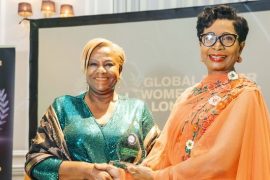Women’s wealth segments in assets under management (AuM) are set to experience substantial growth in the region in the coming years, Boston Consulting Group (BCG) Global Wealth 2019 Market Sizing Database reports.
BCG’s new report advice wealth managers across the Middle East to personalise their approaches to meet the specific needs of individual customers, notwithstanding their gender.
The ‘Managing the Next Decade of Women’s Wealth’ report urges wealth managers to identify the women’s segment as a massive business opportunity.
Women’s wealth in the UAE and Saudi Arabia amounts to $103bn and $224bn respectively, with a projected compound annual growth rate (CAGR) of 8.3 per cent and 5.1 per cent up to 2023, highlighting its growth potential and future prospects.
The Middle East is anticipated to witness strong growth, with a 9 per cent CAGR increase forecast by 2023, driven by greater political and economic stability across the region, as well as continuous improvements in healthcare and educational access for women. Female rates of primary and secondary education participation now coincide with those of males.
In the UAE, women in leadership positions have been increasing by 2.4 per cent, while women in entrepreneurial activities and labour force participation in Saudi has risen by one per cent and 0.5 per cent, respectively.
“The opening up of the Middle East is further evidence that expanded access to education and health care can have positive implications for women,” said Mustafa Bosca, managing director and partner, BCG.
“Labour force participation, leadership positions, entrepreneurial activities, and economic empowerment all play important roles in economic advancement, which will, in turn, contribute to further growth in women’s wealth over the next decade.”
Gender equality in wealth management
With women’s wealth in the Middle East already accounting for $786bn and CAGR estimated to rise by a further 9 per cent by 2023, BCG projects that the coming decade will be a defining period for women and wealth.
Wealth managers should, therefore, regard two crucial steps to ensure the potential of women is realised; create a culture of inclusion – use standardised questions in the on-boarding process and establish varied teams; and focus on the individual while adopting a personalised, tailored approach.
“Examining preconceptions about female investors, moving beyond labels to treat the individual, and adopting an objective-based and evidence-backed advisory approach will enable wealth managers to ensure the full potential of women is realised in the decade ahead,” said Bosca.
“A new wealth management model will meet the demands of women and empower them to make their own decisions. By doing so, they will continue to become a more prominent economic force to the point where, halfway through the coming decade, gender equality will no longer be discussed.”
Gulf Business





Comments are closed.